The Library’s latest reading room display focuses on our poster collection. The posters are a historic visual record of Quaker values. These values – or ‘testimonies’ – of peace, equality, simplicity and sustainability, and truth and integrity are the founding principles of Quakerism.
Quakers live out their faith, acting according to these testimonies in their everyday lives. Quakers are perhaps best known for their peace testimony, which leads them to ‘witness’ against all war and violence.
Quakers have a history of publishing, which dates back to the days of the Society’s founder, George Fox. Early Quakers called themselves the ‘First Publishers of Truth’ and spread the faith by preaching and writing.
In 1656, while in prison, George Fox wrote: “Let all nations hear the word by sound or writing. Spare no place, spare not tongue nor pen, but be obedient to the Lord God and go through the world and be valiant for the Truth upon earth.” (Quaker faith & practice 19:32).
In 1660 George Fox and fellow Quakers presented a petition to Charles II declaring who Quakers were and the principles by which they live. The petition was also published as a pamphlet and is often known as the first peace testimony. The pamphlet was widely distributed to make the public aware that Quakers were nonviolent Christians who posed no threat.
Since the late 19th century, posters have been a popular way of advertising products or making announcements. To capture the public’s attention, posters have a few key words to convey a message and are illustrated with a striking image or design.
The Library holds the archives of the central organisation of Quakers in Britain. The committees administered by Quakers in Britain have produced many posters, pamphlets and cards. Committees and departments have evolved over the years but all of this material encompasses a wide range of interpretation of what these testimonies mean to a modern, ever-changing society.
Quaker public awareness campaigns have focused on world events, social values and spiritual fulfilment.

Peace
Quakers’ ardent campaigning for peace, at both national and local levels, led to the establishment of the Friends Peace Committee in 1888. The Peace Committee used its influence to promote peace on Christian grounds. Members attended peace conferences, wrote to magazines, newspapers, faith bodies and MPs about peace and arbitration, and distributed peace literature to the public.
Today Quaker Peace & Social Witness (QPSW) takes action on peace and social justice. It supports Quaker witness in local communities and schools in Britain and overseas – it works for peace in Palestine and Israel and in East Africa. The Quaker United Nations Office(QUNO) is based in Geneva and New York and facilitates positive social change on a range of issues including peacebuilding and disarmament.
Equality
Quakers believe everyone is equal. This means working to change the systems that cause injustice and hinder true community. It also means working with people who suffer injustice, such as prisoners and asylum-seekers. This testimony has led Quakers to campaign on issues like human rights, housing justice, the Living Wage and same-sex marriage.
Simplicity and sustainability
Quakers are concerned about the excesses and unfairness of our consumer society and the unsustainable use of natural resources. Quakers try to live simply and to find space for the things that really matter: the people around us, the natural world, our experience of God:
“We all need to take personal responsibility to make whatever changes we are called to. At the same time, we need to pledge ourselves to corporate action. The environmental crisis is enmeshed with global economic injustice and we must face our responsibility as one of the nations which has unfairly benefited at others’ expense, to redress inequalities…”
From minute 36, Yearly Meeting 2011
Truth and integrity
Guided by integrity, Quakers try to live the truth of word, power and spirit of God. This testimony raises awareness of making the world a better place through faith by working together as a community as well as individually.
The posters of the Friends Temperance Union (1877–1990) encouraged abstinence from drinking and gambling, both of which were closely linked to social deprivation and poverty. The F.T.U. campaigned to help curb these vices, and Quakers toured the country, giving lectures illustrated with lantern slides to publicise the harm drinking and gambling caused to individuals and families. F.T.U.’s successor, Quaker Action on Alcohol and Drugs, no longer takes an abstinence only approach to alcohol, but continues to work within the Quaker testimony of abstinence and moderation, seeking to address gambling and the use and misuse of all substances, legal, illegal and prescribed, within a framework of Quaker values.


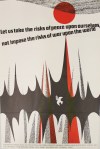
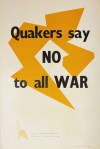
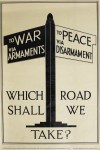

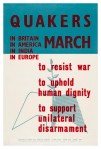

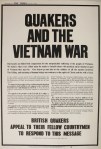
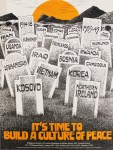
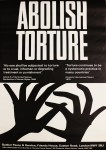


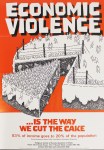
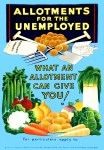

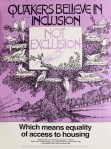

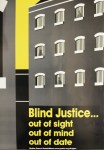
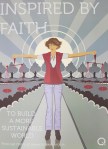
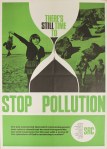

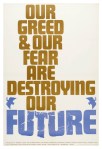
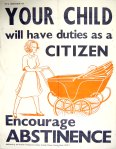
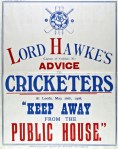
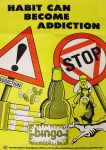
Reblogged this on hungarywolf.
Very interesting post – thank you.
For how long is the present exhibition of posters running?
The display will be up in the reading room for at least the next two months – as it is proving popular we might extend that or re-use it elsewhere in the building so keep an eye on our facebook page for updates!
I have a feeling that our beloved Society is finally waking up to the power of art in outreach! Great…
This collection really deserves public exhibition and wouldn’t it be great to show them all around the corridors of FH with carefully selected posters from the collection adorning the railings on Euston Road inviting people in to take a look?
Thanks for the enthusiastic response! The exhibition is currently on public display in the library reading room. We will have a think about creative ways to expand or re-use the exhibition as it is proving popular.
Where does the Quaker movement stand on “FRACKING” ?
British Quakers have recently called for a ban on intensive forms of fossil fuel extraction, including fracking. Extracting fossil fuels is harmful to people and our planet. Quakers are committed to working for climate justice, driven by belief in equality, justice and respect for the earth. Instead of extracting new fossil fuels, Quakers want investment in renewable, efficient energy that is affordable for all. Find out more here: http://www.quaker.org.uk/our-work/sustainability/fracking.
I love these and would HAPPILY buy a reproduction or two if they were available. I sense the market is perhaps too small for such a thing. Ah, well. Regards from New York Yearly Meeting!
Delighted you like the posters Sarah! Some of them have been reproduced as postcards – on sale from the Quaker Centre Bookshop here at Friends House http://www.quaker.org.uk/resources/bookshop.
Please tell me the dates when the poster collection will be on display. It sounds wonderful.
Thanks, Pat
patdalglish@hotmail.com
Thanks for your interest! The display will be up in the reading room at least until the end of May but it may reappear in another form elsewhere afterwards. Meanwhile you’re welcome to come and see it during Library opening times (Tuesday – Friday, 10-5; closed over Easter).
Pingback: A year in view: Quaker Strongrooms blog 2017 | Quaker Strongrooms